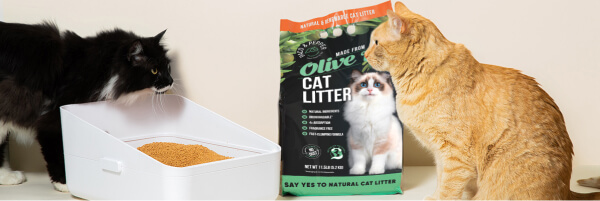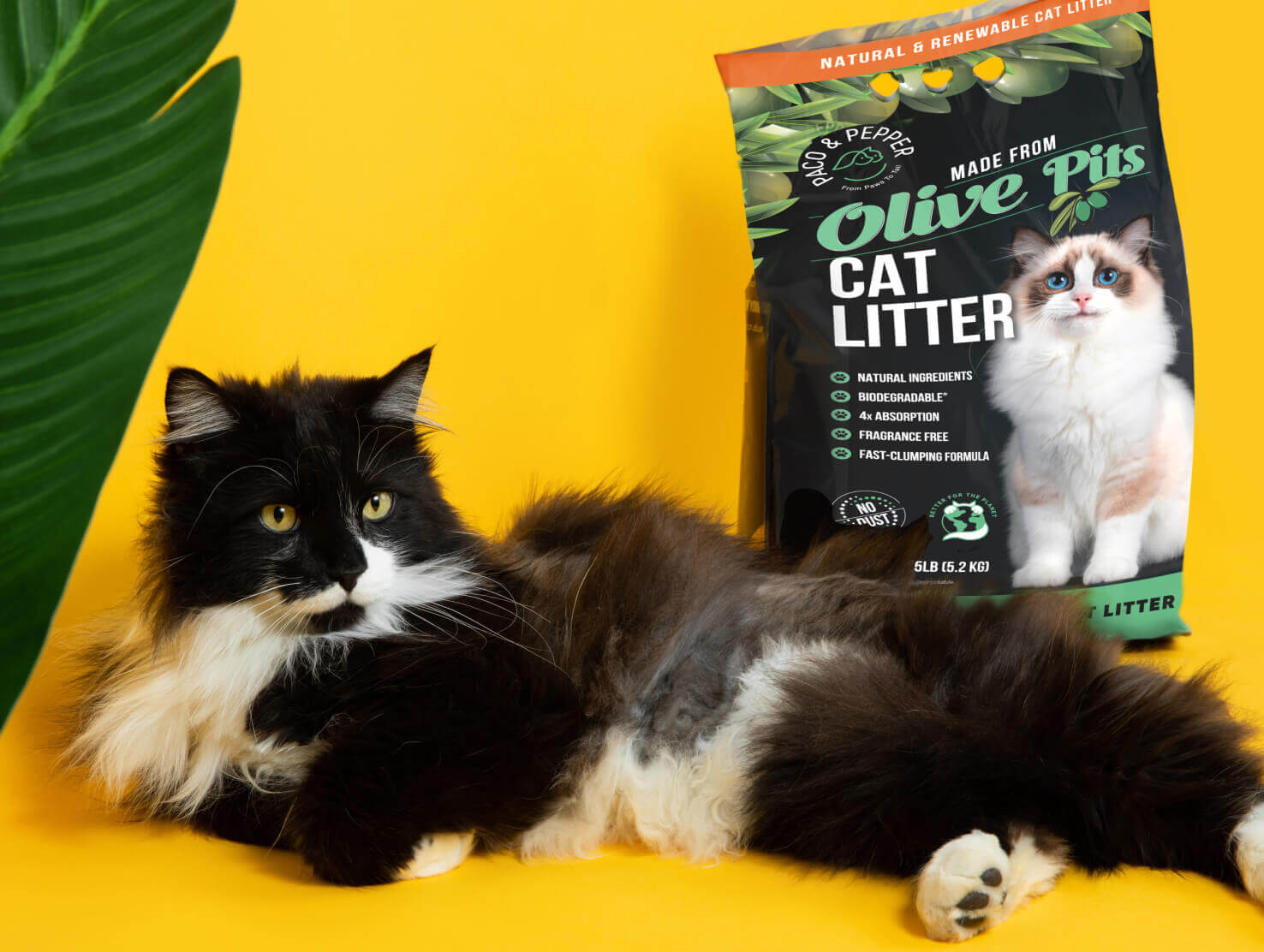Pregnant Women and Cat Litter

Pregnancy is a time of joy and anticipation, but it also comes with its own precautions and worries. Among these concerns is the question of whether pregnant women can clean the cat litter and is cat litter bad for pregnant women or not. In this article, we'll look at the potential risks associated with litter boxes and pregnancy and safer alternatives for expectant mothers.
Is cat litter toxic to pregnant woman?
Cat litter may contain a parasite known as Toxoplasma gondii. This parasite is commonly found in the feces of infected cats and can contaminate the litter box environment. When pregnant women come into contact with contaminated cat litter, they may accidentally inhale Toxoplasma cysts, putting themselves and their unborn children at risk. That’s why pregnant women can’t be around cat litter without urgent need.
In addition to toxoplasmosis, traditional cat litter often contains other harmful substances and contaminants that can pose a risk to pregnant women and their babies.
Additionally, litters often contain artificial flavors and chemicals that can cause allergic reactions and worsen respiratory symptoms in pregnant women. These chemicals can also be harmful to the developing fetus, potentially affecting its respiratory and neurological development.
Is traditional cat litter bad for pregnant women?
Regarding traditional cat litter, clay-based litters are among the most common, but they pose significant risks to pregnant women and their babies. Clay litters may contain silica dust, fine particulate matter that is released into the air when a cat digs into the litter, for example. Silica dust particles are small enough that when inhaled, they can travel deep into the lungs, where they can cause irritation and inflammation. Long-term exposure to silica dust is associated with respiratory diseases such as asthma, bronchitis and even lung cancer. The clumping agent often used in these litters, usually sodium bentonite, can swell and form hard clumps when exposed to moisture. When ingested by pregnant women, sodium bentonite can expand in the digestive tract, leading to blockage and other gastrointestinal problems.
Although scented cat litter is marketed for its odor control properties, it can also be dangerous for pregnant women. Many scented litters contain artificial flavors and chemicals that can cause allergic reactions and respiratory symptoms. Pregnant women may be especially sensitive to these chemicals, as hormonal changes during pregnancy can increase sensitivity to odors and irritants.
Overall, traditional cat litter poses many risks to pregnant women and their unborn babies, from exposure to silica dust and clumping agents to potential allergic reactions and respiratory problems. Therefore, it is recommended that pregnant women avoid contact with cat litter if possible and choose safer alternatives that do not contain harmful chemicals or irritants.
Can pregnant women clean cat litter?
Due to the potential risk of toxoplasmosis and exposure to harmful chemicals, pregnant women are advised to avoid cleaning cat litter whenever possible. If cleaning the litter box is unavoidable, pregnant women should take extra precautions to minimize the risk of infection. This includes wearing gloves and a mask to prevent direct contact with the litter and inhaling dust particles. After cleaning the tray, pregnant women are advised to wash their hands thoroughly with soap.
For households with a pregnant woman, it is important to empty the litter box daily to reduce the buildup of Toxoplasma cysts and minimize the risk of infection. Additionally, pregnant women should avoid being around stray outdoor cats, which may carry the Toxoplasma parasite.
Pregnant girls are also advised to donate blood for IgG to Toxoplasma. If immunoglobulins G are detected, you can calm down a little, this means that the girl has previously encountered this infection and has developed antibodies. If not, then you need to be careful. What to do in this case?
- Ask your spouse, partner or someone close to you to clean the litter box immediately after the animal defecates (or do it yourself, but wear gloves, and then wash your hands thoroughly, as we mentioned earlier).
- It should also be remembered that cats are not the only carriers of infection. That is why during pregnancy it is not recommended to eat raw meat, including poorly cooked steaks - thermally unprocessed meat can also be infected with toxoplasmosis. And, by the way, you should not feed your cats or dogs raw meat - they, just like people, can become infected through it, and then pass it on to their owners. You can also become infected by working with soil in the garden.
Pregnant women's kitty litter
For pregnant women looking for a reliable alternative to traditional cat litter, we recommend using our Paco&Pepper Olive Pit Cat Litter. Made from processed olive pits, this litter is free of harmful chemicals and parasites that are often present in traditional litters, making it a thoughtful choice for expectant mothers and their feline companions.
Paco&Pepper Olive Pit Cat Litter has a soft, delicate texture that makes it easy for cats to dig and scatter. Unlike clay litters that can create dust clouds when disturbed, Paco&Pepper litter is designed to minimize dust, reducing the risk of respiratory irritation for pregnant women and their pets.
Additionally, Paco&Pepper premium cat litter provides excellent odor control, effectively neutralizing unpleasant smells without the use of artificial fragrances or chemicals.
While pregnancy comes with its own challenges, taking precautions when handling cat litter can help protect both expectant mothers and their unborn babies from potential risks. By choosing a high-quality alternative like Paco & Pepper litter, pregnant women can feel confident that they are providing a comfortable and hygienic environment for themselves and their cats.


